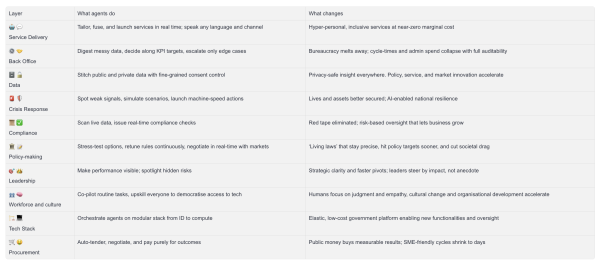Report by the Global Data Barometer: “Across the globe, we’re at a turning point. From artificial intelligence and digital governance to public transparency and service delivery, data is now a fundamental force shaping how our societies function and who they serve. It holds tremendous promise to drive inclusive growth, foster accountability, and support urgent action on global challenges. And yet, access to high-quality, usable data is becoming increasingly constrained.
Some, like Verhulst (2024), have begun calling this moment a “data winter,” a period marked by shrinking openness, rising inequality in access, and growing fragmentation in how data is governed and used. This trend poses a risk not just to innovation but to the democratic values that underpin trust, participation, and accountability.
In this complex landscape, evidence matters more than ever. That is why we are proud to launch the Second Edition of the Global Data Barometer (GDB), a collaborative and comparative study that tracks the state of data for the public good across 43 countries, with a focused lens on Latin America and the Caribbean (LAC) and Africa…
The Barometer tracks countries across four dimensions: governance, capabilities, and availability, while also exploring key cross-cutting areas like AI readiness, inclusion, and data use. Here are some of the key takeaways:
Many countries have adopted laws and frameworks for data governance, but there is a stark gap between policy and practice. Without strong institutions and dedicated capacity, even well-designed frameworks fall short.
- The Role of Skills and Infrastructure
Data does not flow or translate into value without people and systems in place. Across both Latin America and the Caribbean and Africa, we see underinvestment in public sector skills, training, and the infrastructure needed to manage and reuse data effectively.
- AI Is Moving Faster Than Governance
AI is increasingly present in national strategies, but very few countries have clear policies to guide its ethical use. Governance frameworks rarely address issues like algorithmic bias, data quality, or the accountability of AI-driven decision-making.
- Open Data Needs Reinvestment
Many countries once seen as open data champions are struggling to sustain their efforts. Legal mandates are not always matched by technical implementation or resources. As a result, open data initiatives risk losing momentum.
- Transparency Tools Are Missing
Key datasets that support transparency and anti-corruption, such as lobbying registers, beneficial ownership data, and political finance records, are often missing or fragmented. This makes it hard to follow the money or hold institutions to account.
- Inclusion Is Still Largely Symbolic
Despite commitments to equity, inclusive data governance remains the exception. Data is rarely published in Indigenous or widely spoken non-official languages. Accessibility for persons with disabilities is often treated as a recommendation rather than a requirement.
- Interoperability Remains a Barrier
Efforts to connect datasets across government, such as on procurement, company data, or political integrity, are rare. Without common standards or identifiers, it is difficult to track influence or evaluate policy impact holistically…(More)”.

